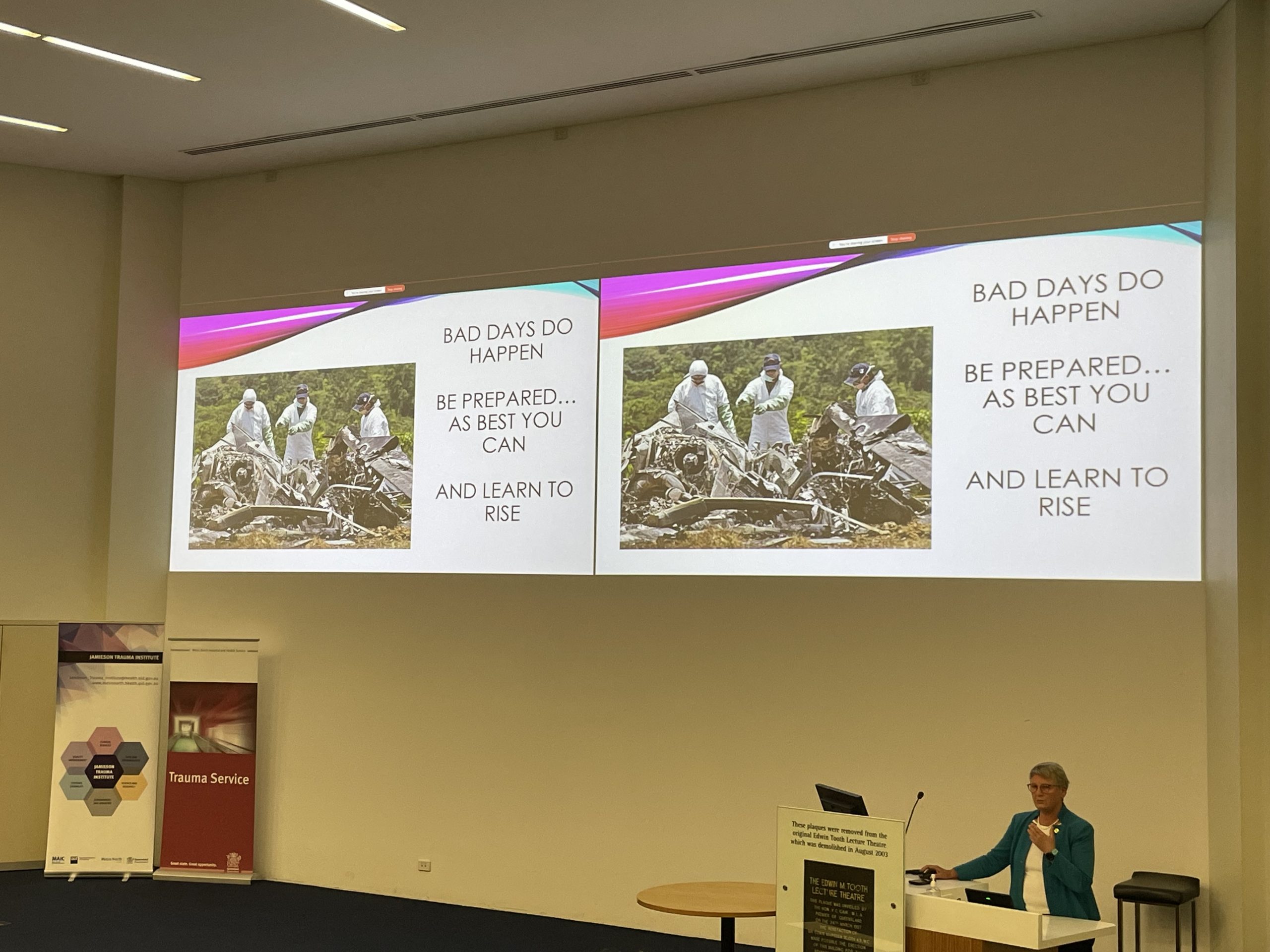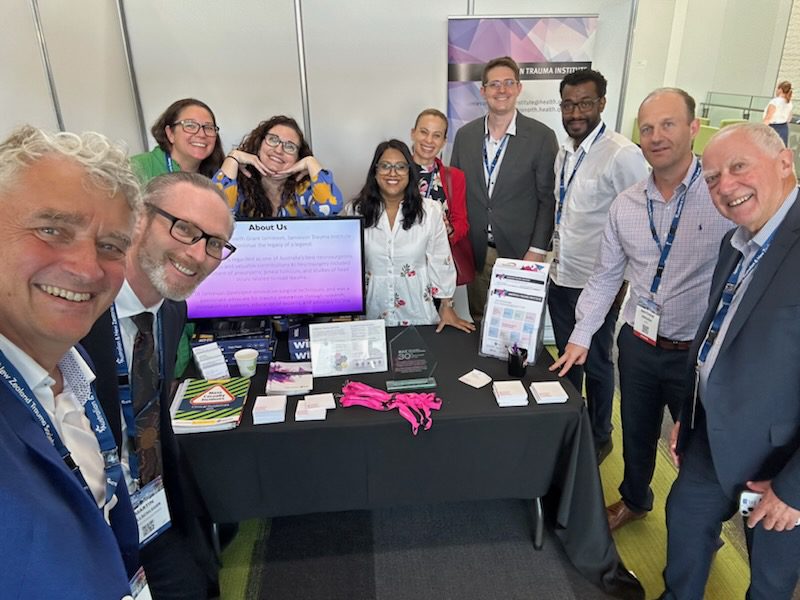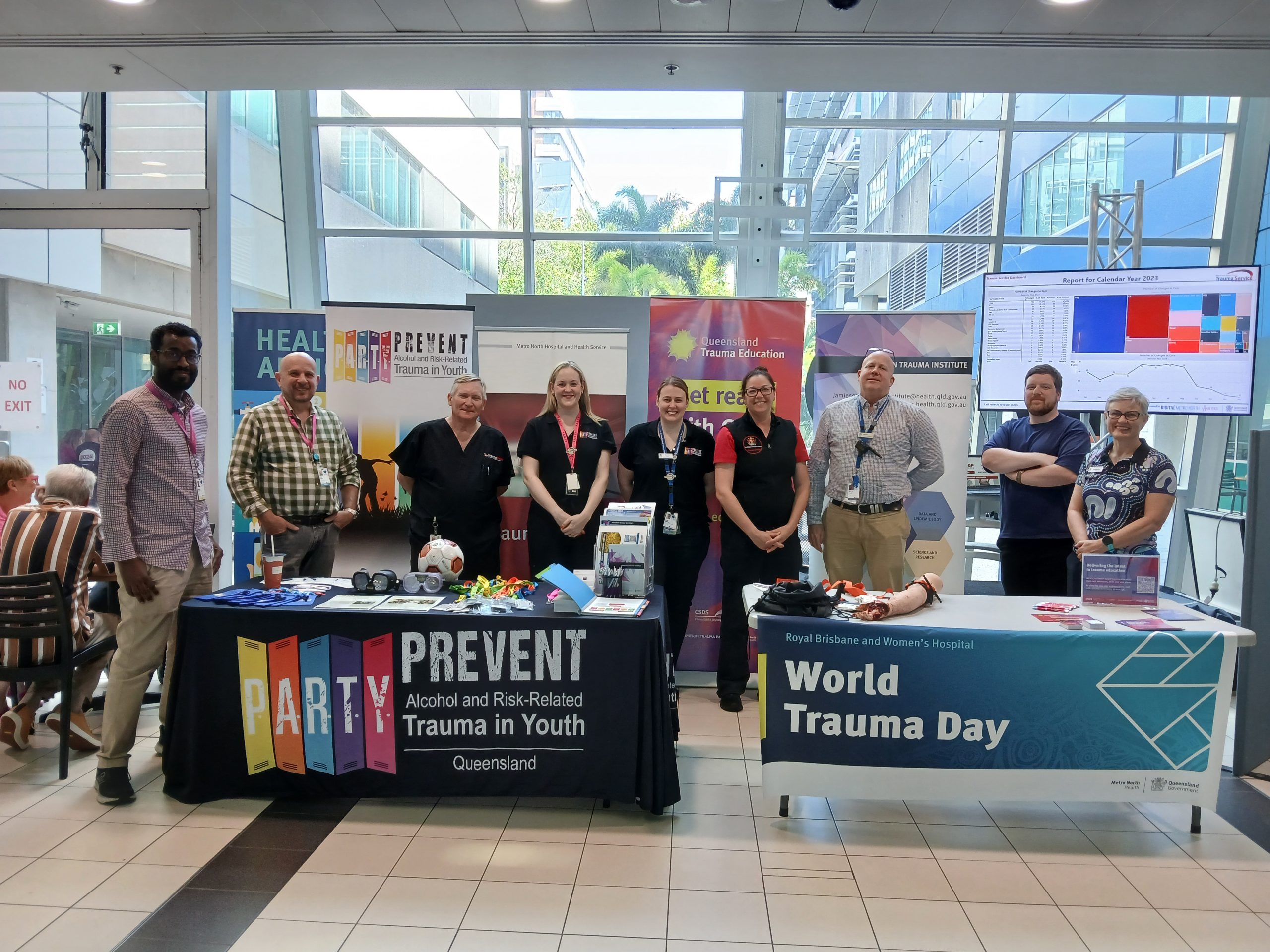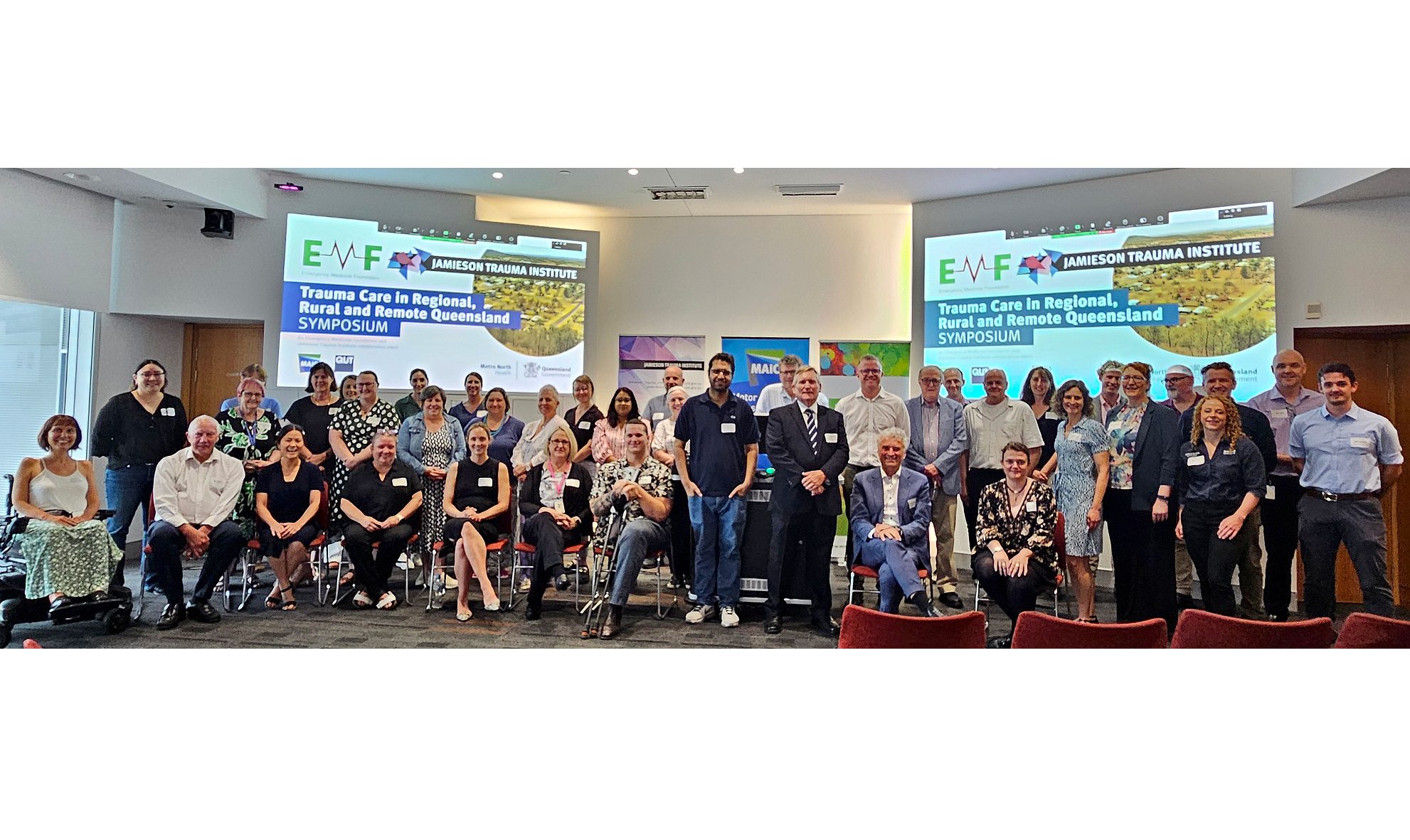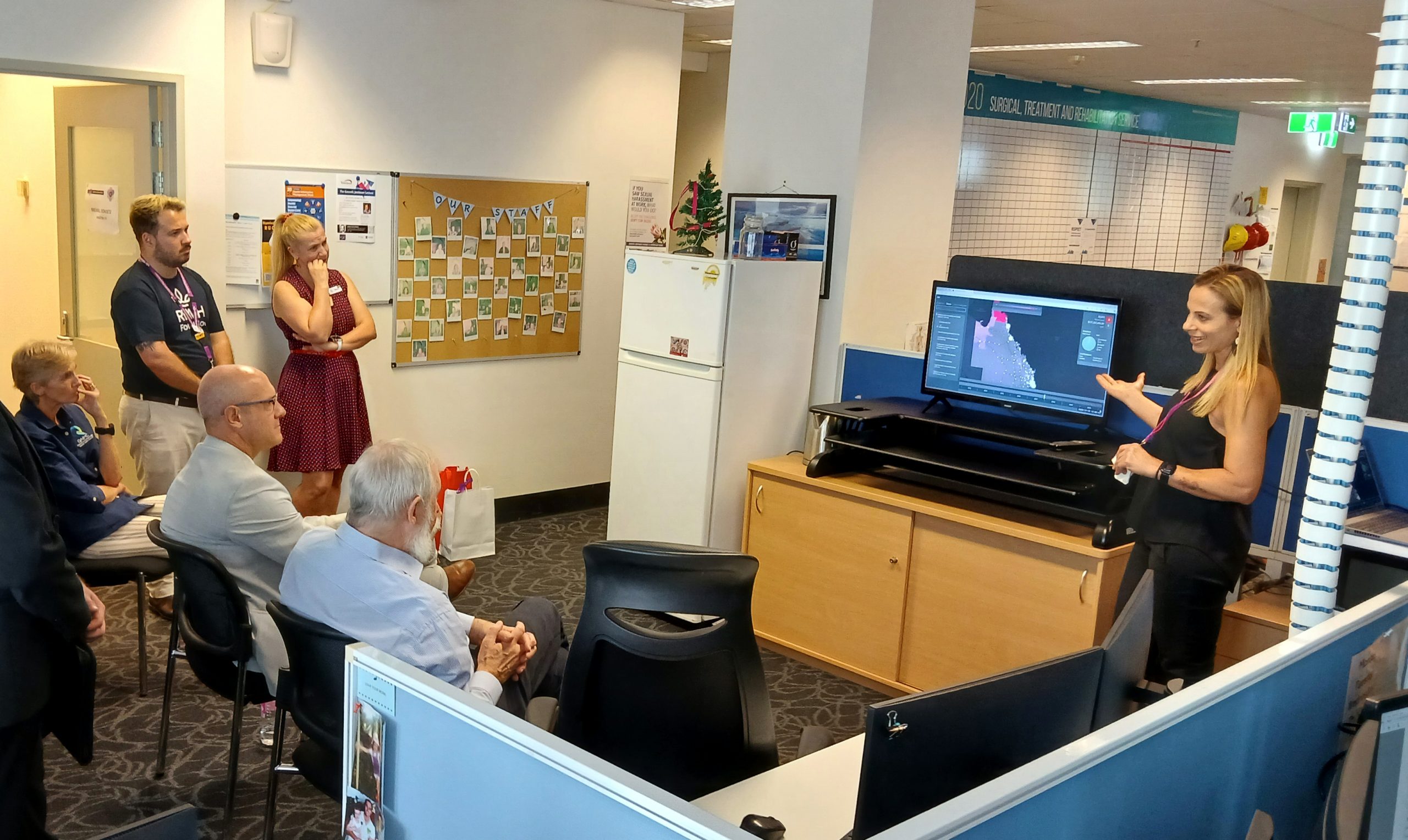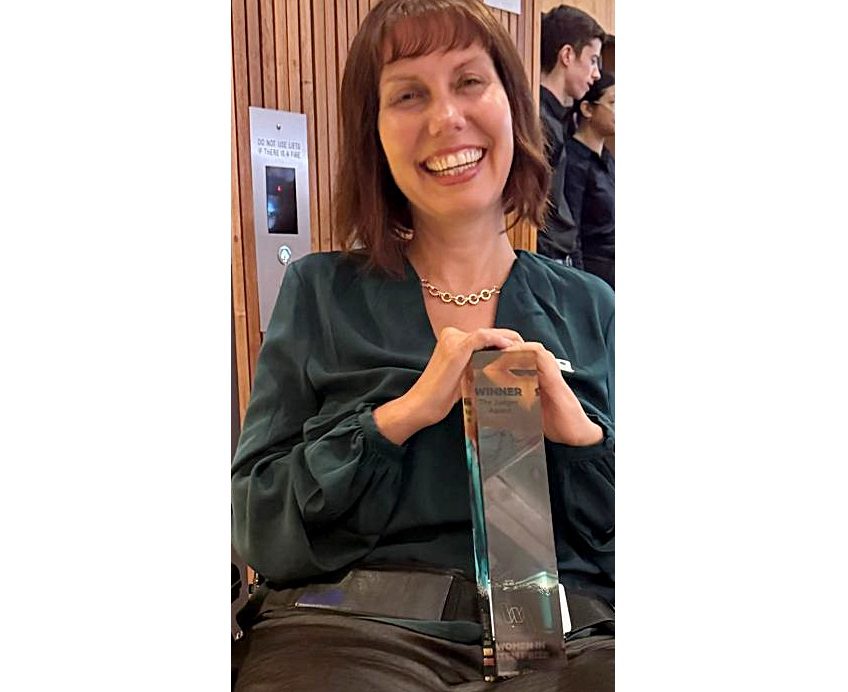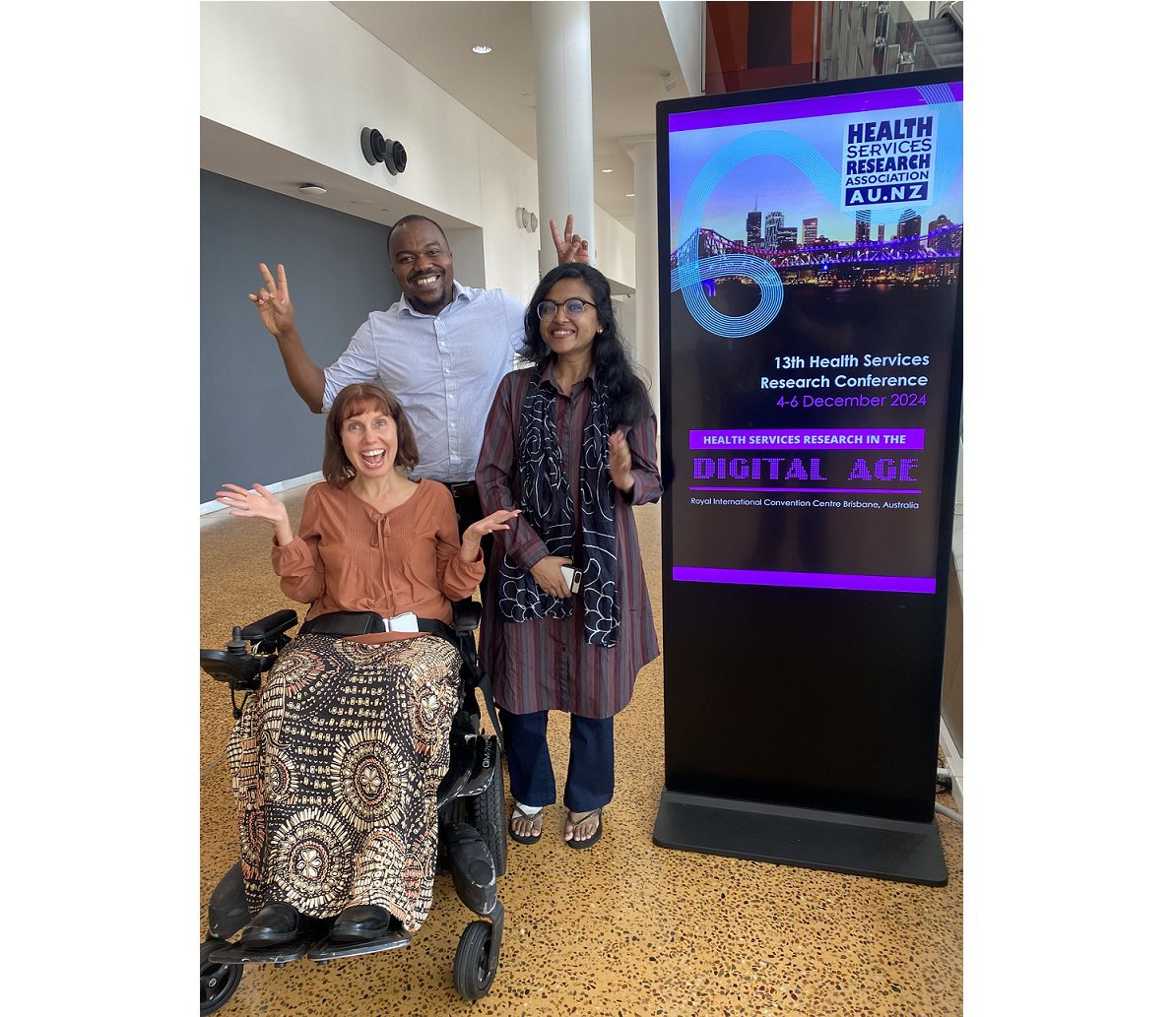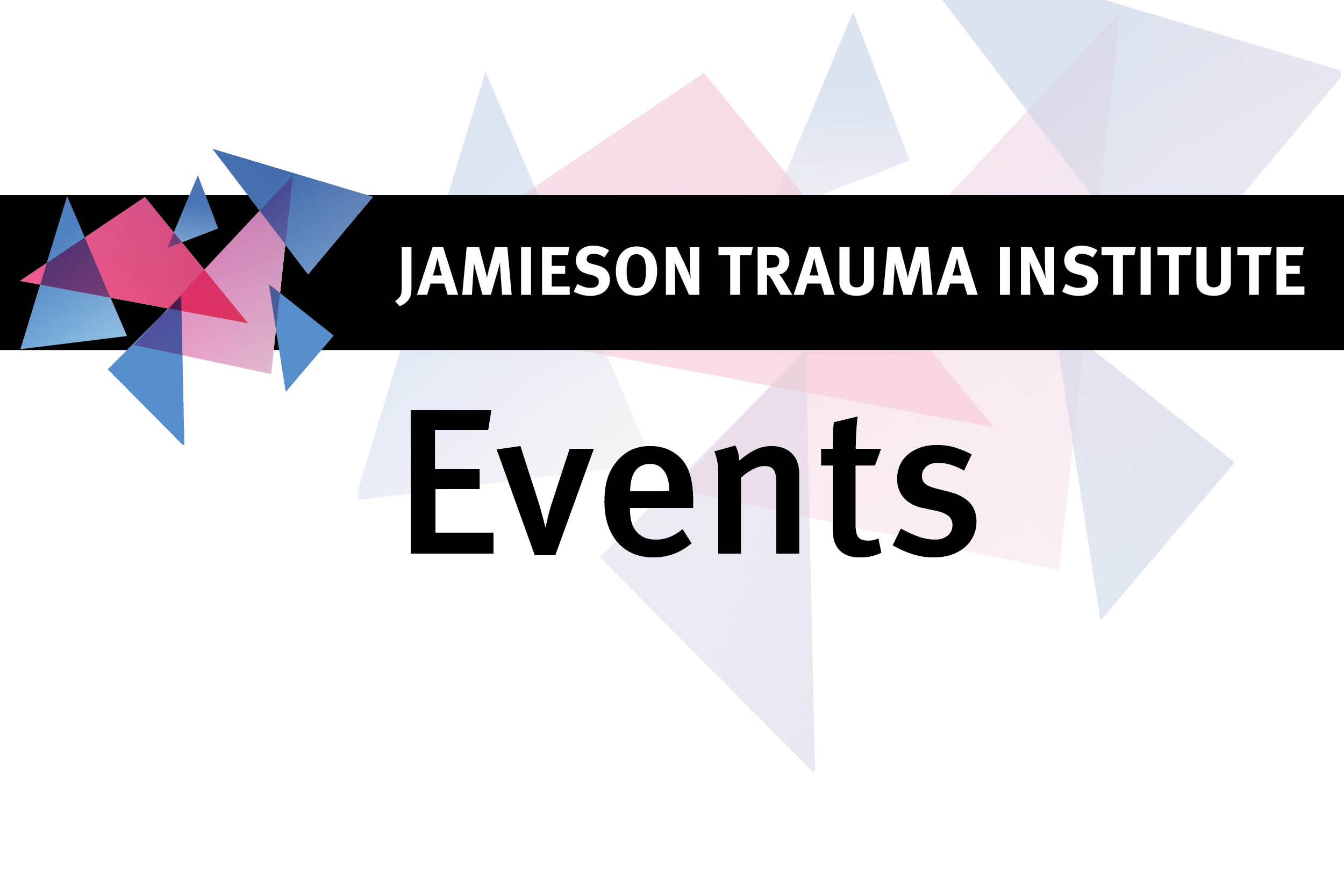
JTI Newsletter – December 2024
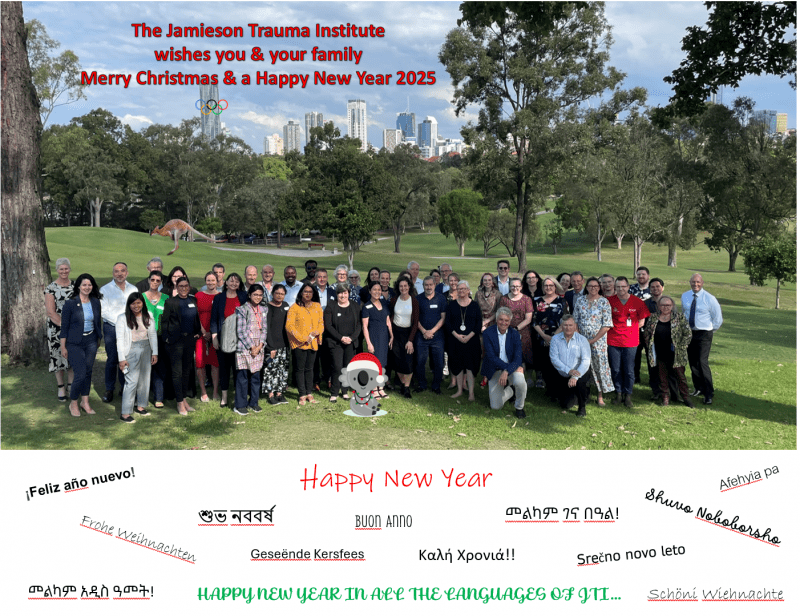
Ending the year in great shape!
Dear colleagues,
Welcome to the last JTI newsletter of 2024.
The last couple of months have been full of activity at JTI:
- We hosted the annual Kenneth Jamieson Lecture in collaboration with the RBWH Trauma Service. Our guest speaker, Dr Annette Holian, captivated the audience with her extraordinary story as an orthopaedic, trauma and military surgeon, deployed to war and disaster zones worldwide to provide complex surgical care to those in need.
- Brett Droder represented JTI at the Australasian Road Safety Conference in Hobart, presenting the ongoing research the team is conducting on Personal Mobility Device (PMD) injuries in Queensland, in partnership with RACQ and Royal Brisbane & Women’s Hospital Foundation.
- We had an incredible time at the Australia and New Zealand Trauma Society Conference.
- On World Trauma Day, JTI joined the RBWH Trauma Service, Queensland Trauma Education, the P.A.R.T.Y. Program and STOP THE BLEED® to celebrate advances in trauma care and raise awareness of the need for timely, effective and patient-centred care of the injured.
- The Trauma Care in Regional, Rural and Remote Queensland Symposium, organised in collaboration with the Emergency Medicine Foundation, was a great success.
- JTI team members received several awards:
- Susanna Cramb won the Judges’ Award for the Queensland Women in STEM Prize 2024
- Fran Williamson won two awards for her presentation “Community opioid dispensing after rib fracture injuries”:
- Australia and New Zealand Trauma Society Conference Best Medical Presentation
- Mayne Academy of Critical Care Research Award
- Samantha Borg received Early Career Researcher award from Hopkins Centre
- JTI hosted a group of donors and stakeholders from the RBWH Foundation at the “Walks and Talks” event. We had the opportunity to share some of the great advances we are working towards in injury prevention and care.
- Clifford Afoakwah, Tasmiah Sad Sutopa and Susanna Cramb represented JTI at the Health Services Research Conference.
We look forward to celebrating further achievements in the next few months.
Angela Watson’s Fellowship extended to continue the valuable work of the Road Safety Data Bureau

Dr Angela Watson
Our colleague Angela Watson, JTI affiliate and Associate Professor at the Queensland University of Technology, has been awarded an extension to her Data Linkage Fellowship by the Motor Accident Insurance Commission (MAIC). Angela is the Program Lead at the Road Safety Data Bureau, a MAIC-funded cross-agency, co-located team within Transport and Main Roads (TMR). The team also includes JTI staff member Dr Jesani Catchpoole as well as representatives from TMR, Queensland Police Service and MAIC. Our very own Prof Kirsten Vallmuur is a member of the RSDB’s Advisory Group.
The RSDB’s purpose is to consolidate, integrate and analyse crash related data from partner organisations to inform whole of government critical decision making on road safety policy, intelligence led policing operations, transport regulation activities and public education initiatives.
With JTI and RSDB’s shared goals of collaboration, partnership, and the use of data analytics to inform decision-making, both organisations continue to make valuable contributions to the Queensland Government’s vision of ‘zero deaths and serious injuries’ on Queensland’s roads by 2050.
Data from JTI study demonstrates the need for reforms to reduce serious e-scooter injuries
JTI is conducting a study on personal mobility device injury surveillance in collaboration with the Royal Automobile Club of Queensland (RACQ) and the Royal Brisbane and Women’s Hospital. We are conducting patient interviews at five major Queensland emergency departments. The research, currently in progress, has provided insights regarding injury patterns and trends to allow targeting of safety initiatives, and RACQ is calling for major changes to e-scooter rules.
Brett Droder presented the findings at the Australasian Road Safety Conference in Hobart.
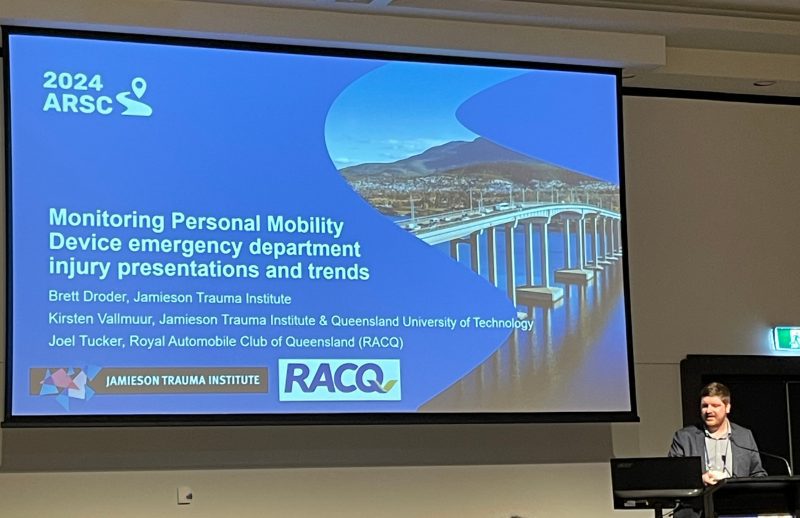
Brett Droder presenting the team’s Personal Mobility Device injury findings
JTI research on long-term use of opioids by patients with rib fractures wins two awards
Understanding what happens to our injured patients after they leave hospital is important.
Rib fractures are common and painful, and we do not know how much pain relief a patient needs after they are discharged from hospital. Our study, led by Dr Fran Williamson and Prof Cate Cameron, identified not only how long patients needed pain relief for, but also what factors might contribute to ongoing need.
The results, published in the British Journal of Pain, were recognised with awards at the Australia and New Zealand Trauma Society Conference and the UQ Mayne Academy Research Day.
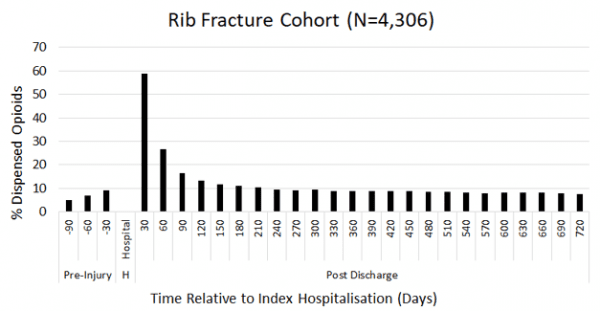
Proportion of persons with rib fracture having opioids dispensed for each 30-day interval, from 90 days pre-injury hospitalisations to 720 after.
JTI and the Herston Imaging Research Facility are exploring advanced imaging techniques for the diagnosis of complex brachial plexus injuries
The brachial plexus is a network of nerves extending from the spinal cord to both hands to allow movement and feeling. A brachial plexus injury occurs when these nerves are stretched, compressed, or in the most serious cases, ripped apart or torn away from the spinal cord. 1% of patients involved in major trauma will have a brachial plexus injury, but current diagnostic techniques to aid clinical decision-making are not sufficiently accurate.
Advanced imaging techniques are urgently needed to show a detailed picture of the brachial plexus. JTI and the Herston Imaging Research Facility, in collaboration with Metro South Health, Queensland University of Technology and The University of Queensland, are exploring a new advanced magnetic resonance imaging (MRI) approach. This new technology will enable clinicians to see the nerve and facilitate diagnosis and surgical intervention.
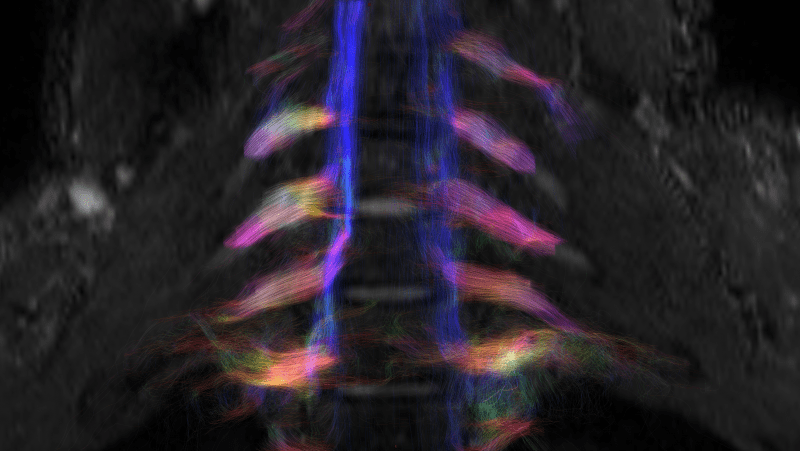
An advanced MRI of the brachial plexus
New report on injuries in Australia and summary of key findings for Queensland
The Australian Institute of Health and Welfare has released a comprehensive update, Injury in Australia 2022–23, which provides an in-depth analysis of injury-related hospitalisations (2022–23) and deaths (2021–22) across the nation.
Queensland displayed high rates of injury hospitalisations across several categories, reinforcing the urgent need for targeted interventions. We have prepared a summary of key findings:
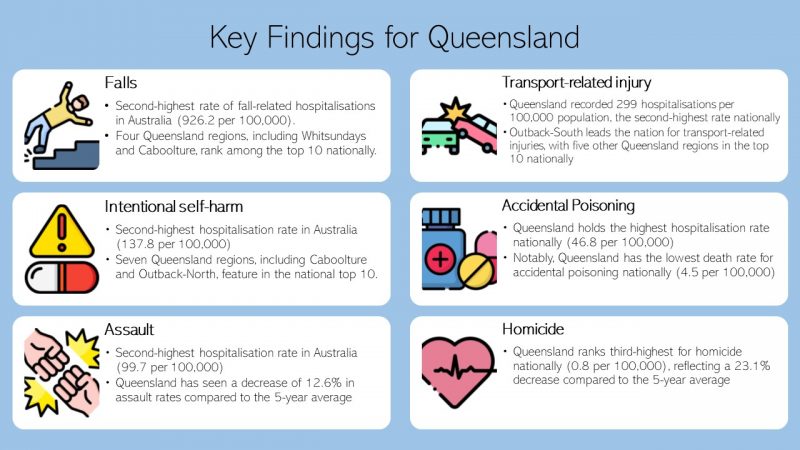
Key findings for Queensland of the AIHW Injury in Australia report
This landmark web-based report features:
- Interactive data visualisations and maps.
- Trends over the past decade.
- Insights into four major external causes of injury.
- Local area information at the SA3 geographic level, allowing comparison across Australia.
You can explore localised data, trends, and visualisations that empower communities and policymakers to address injury-related challenges.
Research student: Samantha Borg
 When Samantha Borg started in a PhD with JTI and the Australian Centre for Health Services Innovation (QUT), she already had years of experience in research. For this reason she is well aware of the importance of doing research with real-world outcomes. Sam’s research focuses on opioid dispensing for pain management in people with spinal cord injuries. The risks and harms of opioids are well known among the general populations, but Sam wants to explore the opioid dispensing patterns and clinical and individual perspectives of opioid prescribing among people with spinal cord injury, in order to lead the way to effective and safe opioid prescribing practices for this population.
When Samantha Borg started in a PhD with JTI and the Australian Centre for Health Services Innovation (QUT), she already had years of experience in research. For this reason she is well aware of the importance of doing research with real-world outcomes. Sam’s research focuses on opioid dispensing for pain management in people with spinal cord injuries. The risks and harms of opioids are well known among the general populations, but Sam wants to explore the opioid dispensing patterns and clinical and individual perspectives of opioid prescribing among people with spinal cord injury, in order to lead the way to effective and safe opioid prescribing practices for this population.
In recognition of her years of high-quality consumer-focused research, Sam has received the Early Career Researcher 2024 award from our fellow institution The Hopkins Centre.
Did you know…?
The JTI family includes over 45 people working or studying full or part-time. We come from over a dozen cultural and linguistic backgrounds, and we are proud of our diversity. Our bring-a-plate events are always a journey of discovery!

